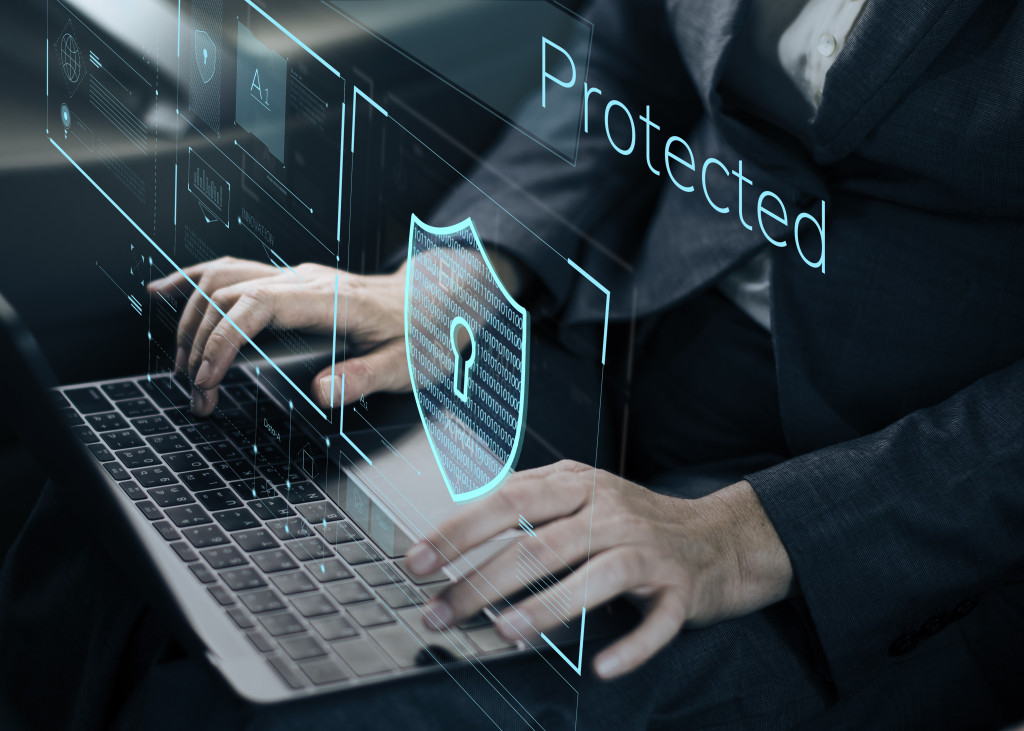- Businesses can enhance security through biometric authentication in access control systems, mitigating password breach risks.
- Investing in cybersecurity software, such as antivirus, firewalls, data encryption, and VPNs, protects sensitive information.
- Utilizing video analytics services and centralized security management streamlines security operations and increases efficiency.
- Implementing robust backup and disaster recovery plans is crucial for business continuity after a security breach.
In today’s world, businesses need to manage their security concerns effectively with a reliable system in place. The old ways of managing security issues are not enough to cover the sophisticated threats of technology-based crimes nowadays. Therefore, it is essential to adopt modern technology for efficient security management.
Integrating technology into security management will help you monitor and respond to security risks in real-time, increase your productivity, and avoid losses from unexpected security breaches. Here are tips to help businesses leverage modern technology for maximum security efficiency.
Use an Access Control System with Biometric Authentication
An essential component of security management is the access control system that restricts unauthorized access to sensitive areas of the company. Biometric authentication, such as retina scanning, fingerprint, or face recognition technology, is a modern approach to enabling access control as it ensures that only authorized individuals gain access to sensitive information. Biometric authentication eliminates the risk of password breaches and provides more reliable security solutions.
Invest in Cybersecurity Software
Cybersecurity software is vital for businesses to prevent security breaches and protect sensitive information from falling into the wrong hands. Investing in cybersecurity software protects your company against cyber-attack threats and reduces potential downtime and associated losses. Here are four of the most essential cybersecurity measures you need to invest in:
Antivirus software
Antivirus software protects your business networks from malicious viruses, trojans, and malware. Most antivirus software includes features such as real-time scans, email protection, web filtering, and more.
Firewall Protection
A firewall is a crucial component to secure your company’s network from outside threats and limit access to confidential information. It also helps monitor communications within the internal network. A firewall acts as a protective barrier and keeps malicious threats out of your system.
Data Encryption
Data encryption ensures that confidential data is secure and inaccessible to unauthorized individuals. Encrypting your data makes it impossible to read without the correct key, making sure no one can access sensitive information even if they manage to get their hands on it.
VPNs (Virtual Private Networks)

VPNs (Virtual Private Networks) provide extra security to your business networks, allowing secure access from remote locations. It also provides encryption for data transmitted over the internet and ensures that only authorized users have access to sensitive information. A VPN is essential for businesses with multiple offices or employees working remotely.
By investing in these cybersecurity measures, businesses can ensure that their confidential data and networks are protected from potential threats.
Use Video Analytics Services
Video analytics services use advanced technology to analyze data from cameras or other video sources. This helps security personnel monitor multiple areas simultaneously and identify any suspicious activity quickly.
Video analytics also assists in locating missing persons, detecting intrusions, identifying potential threats, and monitoring employee productivity. Using video analytics services helps businesses secure their premises and stay one step ahead of potential security threats.
Centralize Security Management
Centralizing the security management process will help you streamline your security operations. This will enable you to monitor all security operations from a single control room. The centralized system lets you set up automatic alerts and notifications for unauthorized attempts without manually going through all security logs or reports, saving time. Centralized security management empowers businesses to manage their security operations effectively and efficiently.
Have Backup and Disaster Recovery Plans

Backup and disaster plans are essential to minimize risk after a security breach. The cost of data loss or unauthorized access can be catastrophic for businesses, so having a backup and recovery plan is crucial for business continuity.
Cloud storage solutions like Dropbox and Google Drive provide businesses with affordable and scalable backup solutions, while a comprehensive disaster recovery plan ensures business operations can recover as soon as possible after an incident.
To wrap up, adopting modern technology in security management is no longer optional but a necessity for businesses in today’s technologically advanced world. Integrating biometric authentication, investment in robust cybersecurity measures, utilization of video analytics services, centralization of security management, and solid backup and disaster recovery plans can significantly bolster a business’s defense system.
Remember that the key to successful security management is vigilance, proactiveness, and the effective and efficient use of technology. With these tips, businesses can be well-equipped to protect their valuable data and resources, ensuring longevity and success in the digital era.

